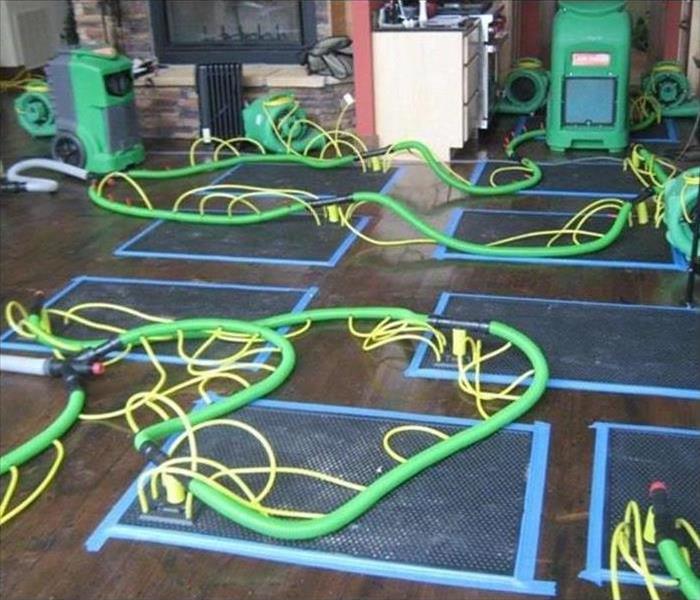How Do You Prevent a Water Damage?
11/1/2022 (Permalink)
How Do You Avoid Water Damage?
Water damage is one of the most common disasters in homes. It can happen to anyone at any time. However, there are many ways that you can prevent water damage in your Franklin, NC home.
First, do your water damage prevention upfront before you even buy your home.
The first thing you should do is to check your property for leaks. If there are any, they must be fixed before you move in.
After that, check the property for mold and water damage. Make sure that there are no signs of flood damage as well. This can often be a problem with properties located near a creek or river in areas prone to flooding during heavy rainfalls and spring thaws.
If you notice any of these signs, contact an inspector immediately before buying the home so that they can determine whether there is anything structurally wrong with it (and thus something worth fixing prior to purchase). You’ll also want to make sure that any necessary repairs have been done already (you don't want to buy a house only after finding out there's mold growing everywhere) and that proper measures have been taken against future damage by ensuring insulation around pipes or other essential household.
Second, call SERVPRO of Nantahala and have them come out and inspect your home.
The second thing that you can do is to call SERVPRO of Nantahala, or another water damage restoration company and have them come out and inspect your home. They're going to be able to see all the damage that has occurred and then they'll give you a free estimate on how much it will cost to dry out your home. Once they have inspected your property, they can help you get started on getting things repaired quickly so that you can move back in as soon as possible.
Third, have some sort of insurance in place.
Number Three is to have some sort of insurance in place, whether it's through your homeowners policy or a different policy that can protect you from water damages as well as fires.
Talk with your insurance company about what kind of coverage you have and how much coverage you need. The more assets that require protection against water damage and fire, the more coverage will be needed. If there's any doubt about whether your home has adequate fire or flood insurance, contact an agent today!
Fourth, check the pipes in between the furnace and the hot water heater.
- Now if you've got an older home, those pipes can get cold. And if they're not insulated properly or they are touching each other, then you can get a freeze there and then when that happens it'll burst your pipe. So, you want to make sure that there's plenty of space between them so it doesn't happen again.
- Also make sure there isn't any water around those pipes because if there is, then it's going to freeze during those cold winter months and burst your pipe too. So, we recommend having an electric heater running down here too just so that keeps everything nice and warm so nothing freezes up on us when we're not looking for these things!
Fifth, make sure that your hot water heater is protected and up to code.
One of the most common causes of hot water heaters bursting is when they're not properly protected. So, generally, you should make sure that:
- The shut off valve on your hot water heater is in good working order and that it's located near where the tank is installed. This will allow you to easily turn off the flow of water if there's a leak or other problem with your unit.
- Your drain for draining out excess water from your tank has a trap and isn't connected to any sewer pipes—this can cause serious problems if not done correctly!
How Do You Prevent a Water Damage?
You know how to prevent a water damage, so now you can put your new knowledge to good use. The next time you see those pesky puddles forming in the bathroom or kitchen, don't panic! Instead of reaching for the phone and calling SERVPRO of Nantahala NC, follow these 3 tips:
- Check the pipes between the furnace and hot water heater.
- Make sure your hot water heater is protected and up to code.
- Have insurance in place.
Hopefully, you have a better understanding of how to prevent water damage. As you can see, there are many things you can do to protect your home and prevent water damage from occurring.




 24/7 Emergency Service
24/7 Emergency Service